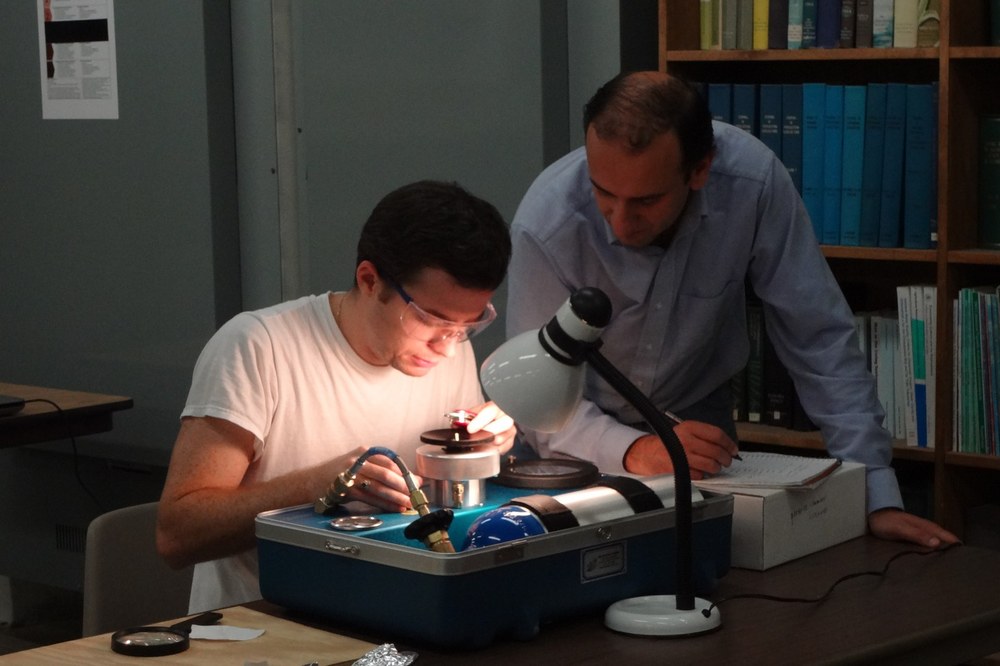We are a systems laboratory. We train students with the scientific and intellectual skills that will help them succeed at both academic and non-academic positions.

Gustavo Camargo measuring leaf water potential.
Teaching Philosophy
Our teaching philosophy is based on three principles: (1) center attention on learning rather than teaching, (2) promote productive team activities, and (3) use real-world examples to illustrate the application of basic knowledge and critical thinking. A learning environment based on these principles promotes an active role of the students, builds independence in learning, and represents the environment in which students will operate as professionals. In our courses students take an active role, with hands on experience with lab equipment and active teamwork engagement. We explicitly train students to both benefit from the synergies and manage the challenges of teamwork. Our training includes strategies to establish high performing teams, manage conflict resolution, and tailor roles to individual attributes.
We are committed to develop expertise in disciplinary areas in a transdisciplinary context. Accordingly, the modeling framework is not an end but a mean to sharpen the student's understanding of how concrete disciplinary questions fit in a system's context.
Courses
This course introduces students to the construction and use of simulation models of agricultural and natural systems

This course trains the students in the analysis of the interaction of living organisms and their microenvironment by applying biophysical principles and engineering methods.

This course provides students with the fundamentals of agronomy with practical applications and emphasis on the Northeastern United States.


